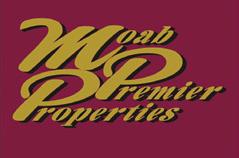
9 minute read
Talk like a real estate pro
Addendum
An addendum is an addition to a contract. Addendums often clarify offer letters or modify terms of a contract.
Adjustable-Rate Mortgage
Adjustable-rate mortgages (ARM) have an interest rate that changes over time. It usually begins with a lower interest rate than fixed-rate mortgages, but typically changes to follow market rates.
Amortization
Amortization refers to a payment schedule showing what goes toward principal and interest balances. Typically, payment goes toward interest first and then the principal balance.
TALK LIKE A PRO
LEARN THESE 50 IMPORTANT REAL ESTATE AND LENDING INDUSTRY WORDS AND PHRASES
Annual Percentage Rate (APR)
APR is the annual cost of a loan expressed as an interest rate. It often includes loan origination fees, most closing costs, mortgage interest and any discount points.
Appraisal
Appraisals are an expert’s opinion of a home’s market value. Appraisers examine a home’s condition, location and similar properties recently sold. By law, appraisals are done by neutral third parties with no interest in the sale.
Appreciation
Appreciation is the amount a home’s value increases over time. Historically, real estate has appreciated an average of about 4% per year in the United States.
As-Is
When a seller stipulates that they will not make any changes to a home, the home is being sold as-is.
Assessed Value
Typically, the value placed on property for the purpose of taxation.
Backup Offer
If a buyer wants a home already under contract, they may request to be second in line by submitting a back-up offer. There can legally only be one backup offer on a home at any given time.
Borrower
In real estate, you can pay for a home outright with cash or in installments with a loan. When you pay using a loan, you are legally referred to as the borrower.
Broker
An individual or firm that acts as an agent between providers and users of products or services, such as a mortgage broker or real estate broker.
Buydown
A buydown happens when the borrower buys a lower interest rate by paying a premium called a “point” to the lender.
Buyer’s Agent/ Listing Agent
A buyer’s agent represents the buyer’s interests – finding a home within a budget that matches what they are looking for. The listing agent represents the seller’s interests – getting a good sale price, with a deal likely to close efficiently.
Buyer’s Market/ Seller’s Market
The real estate market always varies in who it favors: buyers or sellers. In a buyer’s market, conditions favor those looking to purchase real estate. This happens when the supply of homes for sale exceeds purchase demand. The reverse is called a seller’s market and favors those looking to sell real estate.
Cash-Out Refinance
Cash-out refinancing is a way to turn your equity into cash. Let’s say you own a home worth $250,000. You have $100,000 in equity and owe $150,000. You can refinance by setting up a new $200,000 loan with your lender and receive $50,000 cash at closing.
Clear Title
Ownership that is free of liens, defects, or other legal encumbrances.
Closing
The process of completing a financial transaction. For mortgage loans, the process of signing mortgage documents, disbursing funds, and, if applicable, transferring ownership of the property. In some jurisdictions, closing is referred to as “escrow,” a process by which a buyer and seller deliver legal documents to a third party who completes the transaction in accordance with their instructions.
Earnest Money
Co-Borrower
Any borrower other than the first borrower whose name appears on the application and mortgage note.
Commission
The fee charged for services performed, usually based on a percentage of the price of the items sold (such as the fee a real estate agent earns on the sale of a house).
Comparables
An abbreviation for “comparable properties,” which are used as a comparison in determining the current value of a property that is being appraised.
Contingency
A condition that must be met before a contract is legally binding. For example, home purchasers often include a home inspection contingency; the sales contract is not binding unless and until the purchaser has the home inspected.
Conventional Mortgage
Conventional mortgages are funded by private lenders, rather than governmentbacked agencies. Most often, these loans are then sold to government-sponsored enterprises like Fannie Mae or Freddie Mac to provide liquidity to the nation’s mortgage market.
Debt-to-Income Ratio
The percentage of gross monthly income that goes toward paying for your monthly housing expense, alimony, child support, car payments and other installment debts, and payments on revolving or open-ended accounts, such as credit cards.
Deed
The legal document transferring ownership or title to a property
Down Payment
A portion of the price of a home, usually between 3-20%, not borrowed and paid up-front in cash. Some loans are offered with zero down payment.
Due Diligence
Due diligence is the period of time when a buyer examines a home’s condition and contract terms, before becoming legally obligated to purchase. Due diligence is your time to discover and consider any financial risk associated with investing in a home.
Earnest Money
Earnest money is a portion of a down payment paid before closing to show you are a serious buyer. Also known as a good faith deposit.
Equity
Equity is how much of a home’s value can be attributed to the owner. It’s calculated by subtracting the amount owed from the home’s market value. So, if your home is worth $250,000 today, but you still owe $150,000, your equity in the home is $100,000.
Fixed-Rate Mortgage
This mortgage guarantees a set interest rate for the duration of your loan. With a fixed-rate mortgage, your monthly principal and interest payment never changes.
Foreclosure
When a borrower fails to make agreedupon payments to the lender, the lender can take possession of the home in a legal process called foreclosure. The lender may then sell the property on the market to pay off the defaulted loan.
Lender
A lender is a financial institution that offers home loans or other credit lines.
Lien
A claim or charge on property for payment of a debt. With a mortgage, the lender has the right to take the title to your property if you don’t make the mortgage payments.
Escrow
An item of value, money, or documents deposited with a third party to be delivered upon the fulfillment of a condition. For example, the deposit by a borrower with the lender of funds to pay taxes and insurance premiums when they become due, or the deposit of funds or documents with an attorney or escrow agent to be disbursed upon the closing of a sale of real estate.
FHA Loan
The Federal Housing Administration (FHA) insures these loans to help provide more affordable housing, especially to first-time home buyers. FHA loans often offer lower down payments, closing costs and credit requirements.
FICO Score
A FICO score is the most common credit score report used by lenders. Developed by the Fair Isaac Corporation, this report generates a number based on payment history, debts, length of credit history, types of credit already in use, among other factors. The higher the score, the better.
Mortgage
Appreciation
Home Equity Line of Credit (HELOC)
A loan using your home as collateral. In some states the term mortgage is also used to
Appreciation is the amount a home’s value describe the document you increases over time. Historically, real estate has sign (to grant the lender a lien appreciated an average of about 4% per year in the United States. on your home). It also may be used to indicate the amount of money you borrow, with interest, to purchase your house. The amount of your mortgage often is the purchase price of the home minus your down payment.
A home equity line of credit is a loan where you can borrow money against your home’s equity when you want it, not as a lump sum. This loan has an agreedupon maximum borrowing amount in an agreed-upon time period.
Offer/Counteroffer
An offer is a buyer’s legal proposal to purchase a home under a certain set of conditions. A counteroffer is a seller’s response – typically agreeing to the offer, but with one or two changes.
Homeowners Insurance
Homeowners insurance protects your home from damages covered in your policy. Homeowners insurance is required by mortgage lenders, and you must purchase a policy before closing on your home.
Inspection
A professional inspection of a home to determine the condition of the property. The inspection should include an evaluation of the plumbing, heating and cooling systems, roof, wiring, foundation and pest infestation.
Pending
When a seller accepts a buyer’s offer, the home becomes pending. Sellers usually cannot consider new offers once the sale is pending, but you may be able to submit a backup offer.
Private Mortgage Insurance
Insurance for conventional mortgage loans that protects the lender from loss in the event of default by the borrower.
Principal
The amount of money borrowed or the amount of the loan that has not yet been repaid to the lender. This does not include the interest you will pay to borrow that money. The principal balance (sometimes called the outstanding or unpaid principal balance) is the amount owed on the loan minus the amount you’ve repaid.
Purchase Agreement
A document that details the price and conditions for a transaction. In connection with the sale of a residential property, the agreement typically would include: information about the property to be sold, sale price, down payment, earnest money deposit, financing, closing date, occupancy date, length of time the offer is valid, and any special contingencies.
Refinance

Refinancing is obtaining a new loan to pay off an original loan on the same home. Many times refinancing is done to get an improved rate.
Second Mortgage

A mortgage that has a lien position subordinate to the first mortgage. A HELOC is a common type of second mortgage.
Seller’s Disclosure

A Seller’s Disclosure is a legal document sellers must fill out stating any home defects that they are aware of that may affect its value.
Title
The right to, and the ownership of, property. A title or deed is sometimes used as proof of ownership of land.
Under Contract
When a buyer and seller agree on a purchase agreement, the home moves to “under contract” status. This means both parties are legally obligated to proceed with the sale so long as conditions are met.
Underwriting
A process used to determine loan approval. It involves evaluating the property and the borrower’s credit and ability to pay the mortgage.
VA Loan
A VA loan is guaranteed by the U.S. Department of Veterans Affairs, and is a benefit of military service for veterans, activeduty military, reservists and qualified surviving spouses. Under a VA loan, a down payment and PMI are usually not required.
Walk-Through
A common clause in a sales contract that allows the buyer to examine the property being purchased at a specified time before the closing.
Information taken in part from Federal Trade Commission website. The FTC promotes competition and protects U.S. consumers.
Ahh Moab!

Nancy Fitzgerald
Realtor 435.260.7327
nancyfitzmoab@gmail.com

Kevin Fitzgerald
Realtor 435.260.9890
kevinfitzmoab@gmail.com
moabpremierproperties.com
Your hometown independent insurance agency.
Serving YOU since 1962.





